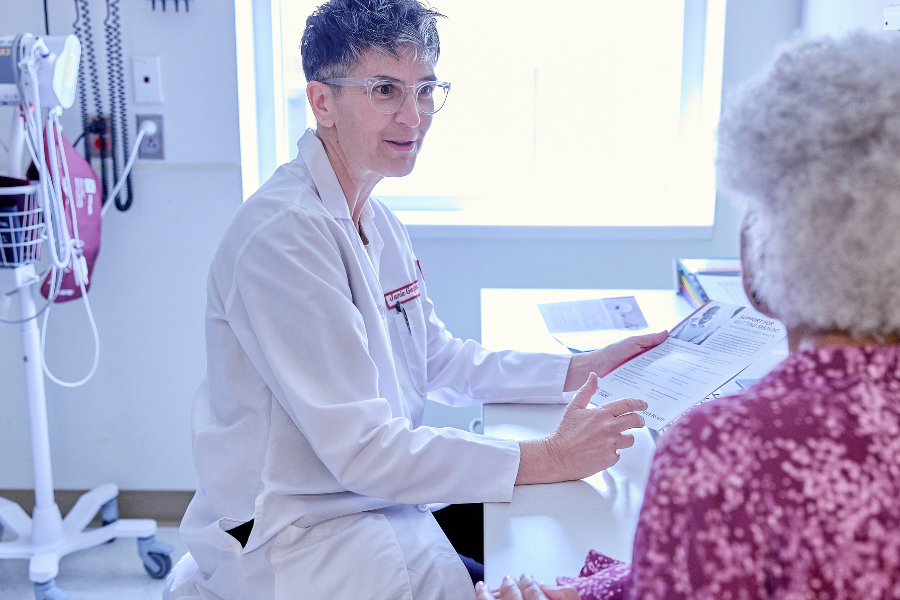Hepatitis C is a viral infection which, if it remains undiagnosed for many years, becomes liver disease. One in five people with hepatitis C develop liver cirrhosis within 20 years. It is estimated that up to 3.5 million people in the US are exposed to the hepatitis C virus, and only half of them have been diagnosed with infection. The major sources of hepatitis C acquisition are intravenous drug use and blood transfusions prior to 1992. The prevalence of hepatitis C virus exposure among people born between 1945 and 1965 is 3.25%: five times higher than among adults born in other years.
The good news is that hepatitis C is a curable disease and, with the advent of new treatments, cure rates can be as high as 97%. The treatment options are simple and safe. Most important, they are of short duration; three months or less in most cases. With the availability of medication in pill form, injections are often no longer needed to treat hepatitis C.
Studies show that patients who are treated for hepatitis C have a significantly reduced chance of getting liver disease or liver cancer. Research also shows that patients who are treated for hepatitis C live longer and have far fewer liver transplants than those who are not cured of the virus.
When Should You See Your Doctor?
If you have never been tested for hepatitis C in the past, ask to be screened with a blood test if:
- You were born from 1945 to 1965
- You ever used an intravenous drug
- You received a blood product transfusion prior to 1992
- You sustained a job-related needle stick injury
- You have high-risk sexual practices with blood exposure
- You are diagnosed with an HIV infection
- You mother had hepatitis C at the time of your birth
If you tested positive for hepatitis C in the past:
- You should talk to your doctor about a blood test to check for hepatitis
- You should ask for a referral to a specialist - a gastroenterologist, hepatologist or infectious diseases doctor - for linkage of care and treatment discussions
What Should You Expect When You See a Specialist?
When you see a specialist, you should expect to get laboratory and radiology testing. At the time of a hepatitis C infection clinic visit you should expect:
- Medical evaluation of the presence or development of liver disease
- Specific information regarding the type of hepatitis C virus
- Testing for HIV infection
- Discussion regarding possible treatment options and strategies
- Advice on how to monitor liver health, even if treatment is not recommended
- Consideration of hepatitis A and B vaccination
What Should You Do in the Meantime?
There are general guidelines to prevent transmission of infection, which you should keep in mind if you have a hepatitis Infection:
- Do not donate blood, tissue or semen
- Do not share appliances that come into contact with blood, such as toothbrushes, dental appliances, razors, nail clippers, glucometer and blood sugar testing lancets or needles
- Do not engage in unprotected sexual activity with multiple partners
- Reduce or discontinue alcohol consumption, as alcohol use may contribute to early development of liver disease
- Consider losing weight (if you are overweight), follow a healthy diet and stay physically active
Common Misconceptions About Hepatitis C
If you are diagnosed with hepatitis C infection:
- You can share food, drink, clothes, towels or cleaning materials
- You can eat or drink using the same utensils as others
- You can play with children, kiss and hug others
- You can attend school, day care and community pools
- There are no restrictions on school or sports
- Monogamous sexual contact with your partner may not require protection, as the risk of sexual transmission with routine sex practices is low
- Breast feeding is generally allowed for mothers with hepatitis C but should be avoided if there is breast injury or bleeding
- You can take acetaminophen (Tylenol) safely up to 1.5 gm every 24 hours as needed
The information on this Site is for informational purposes only and is not intended to be, or a substitute for, legal or medical professional help, advice, diagnosis or treatment; nor can we attest to how secure your private health information is when using any app. Always seek the advice of an attorney for legal advice and your physician or other qualified health care provider with any questions that you have regarding your medical care. When using any app to store your private health information, you should investigate how secure your information will be before using it For more information, see our Terms of Use.

